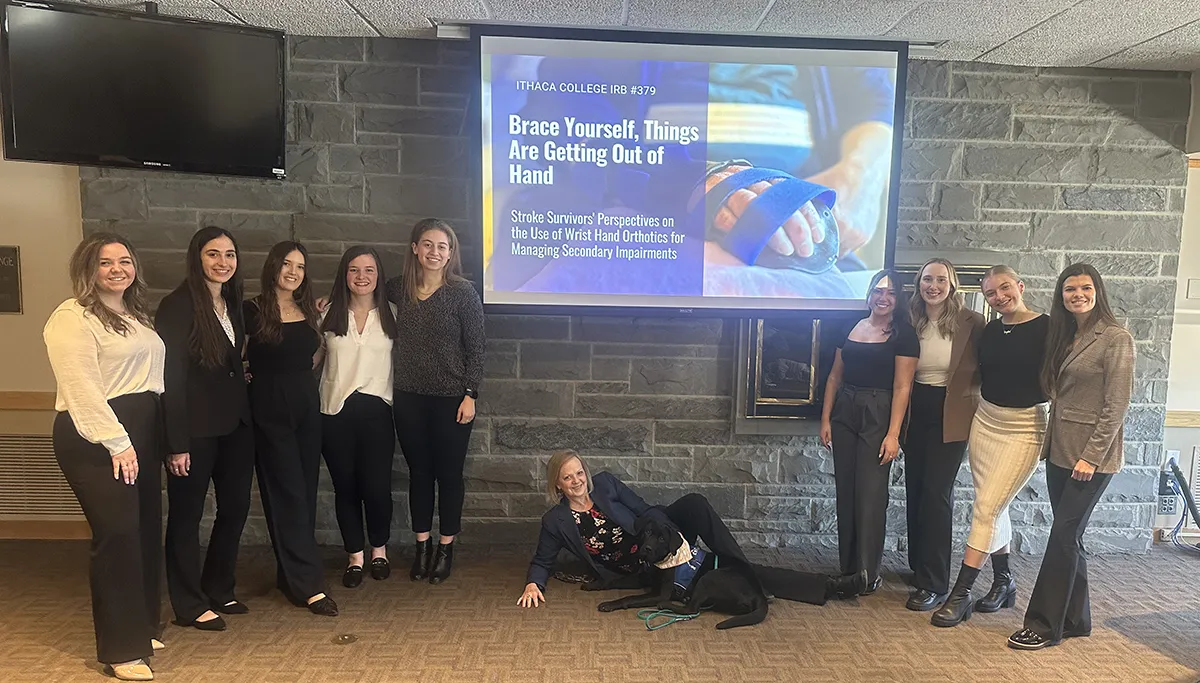On March 20, more than 50 Ithaca College occupational therapy graduate students were eager to give one of the most important presentations of their academic careers. Held annually, the Occupational Therapy Graduate Research Colloquium is an opportunity for students to celebrate their progress and present their research findings to the wider Ithaca College community.
Billed as the culminating event in the M.S. in occupational therapy degree curriculum, presenting at the colloquium is required of all degree candidates and marks the completion of three semesters of research. Beginning in the spring of their senior year, students either form groups and address an existing research topic with a faculty member or work independently and develop a thesis under the guidance of an advisor and research committee.
Topics at the 2023 colloquium covered a wide range of scholarly areas, spanning from occupational therapists’ perspectives on outdoor play to occupational performance in women with female reproductive organ cancers. Each group was given 20 minutes to present, followed by a 10-minute question-and-answer session to interact with the audience.
“This was by far the most scared I’ve been to give a presentation,” said Kelli Friedman ’22, M.S. ’23. “It is hard to conceptualize a year and a half of work being shared in 20 minutes, but in the moment, I felt proud and excited.”
